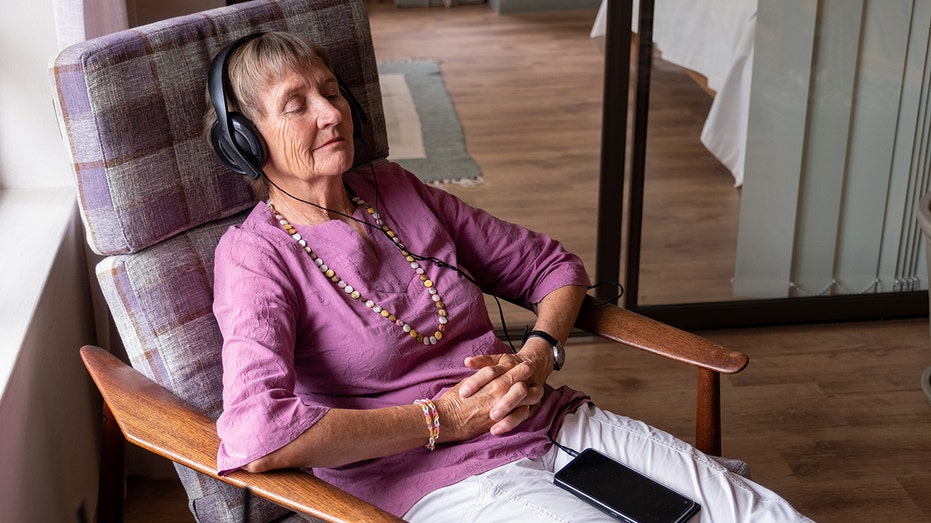Top Stories
Listening to Music Cuts Dementia Risk by 40% for Seniors

BREAKING: A groundbreaking study from Monash University reveals that listening to music can reduce the risk of dementia by nearly 40% for adults over 70. This urgent finding could reshape how we approach cognitive health in aging populations.
The research, led by honors student Emma Jaffa and Professor Joanne Ryan, shows that seniors who regularly engage with music—whether listening or playing instruments—experienced a 39% lower risk of developing dementia. Those who played instruments demonstrated a 35% reduction in risk. Notably, combining both activities delivered even more significant protective effects against cognitive decline.
Over 10,800 adults aged 70 and older were tracked for several years as part of extensive Australian studies published last month in the International Journal of Geriatric Psychiatry. Participants reported their music engagement habits, which were linked to not only a lower risk of dementia but also a 22% reduction in mild cognitive impairment. This research highlights the potential of music as a simple, accessible strategy for maintaining cognitive health in later years.
In a statement, Professor Ryan emphasized the vital importance of preventive strategies: “With no cure currently available for dementia, identifying methods to delay its onset is critical.” She added that lifestyle choices can significantly influence brain aging, beyond mere genetics and age.
However, the findings also revealed that the benefits of music were most pronounced among seniors with higher education levels, specifically those who had completed at least 16 years of schooling. This raises significant questions about accessibility and the role of education in cognitive health.
While the study does not definitively prove that music prevents dementia, it adds to a growing body of evidence suggesting that engaging in creative activities can have profound effects on brain health. The results align with previous research, including a 2022 meta-analysis from the U.S. and Japan, which found similar cognitive benefits among older adults who play musical instruments.
Experts are cautious yet optimistic. Dr. Morten Scheibye-Knudsen, an associate professor of aging at the University of Copenhagen, stated, “In general, it is advised to train your brain, but the data is actually not that clear.” He acknowledged, however, that playing an instrument fosters increased social interaction, which is crucial as we age.
As dementia affects approximately 57 million people globally, these findings underscore a potential lifeline for enhancing cognitive function through music. The urgency of this research cannot be overstated, given the rising prevalence of dementia worldwide.
With further research needed to establish causation, the immediate takeaway for older adults is clear: engaging with music—whether by listening or playing—may significantly benefit brain health. As the conversation around cognitive aging continues, this study could inspire new approaches to maintaining mental acuity in later life.
Stay tuned for more updates on this developing story and consider sharing this vital information with loved ones who may benefit from these insights.
-

 Sports3 weeks ago
Sports3 weeks agoSteve Kerr Supports Jonathan Kuminga After Ejection in Preseason Game
-

 Top Stories1 week ago
Top Stories1 week agoMarc Buoniconti’s Legacy: 40 Years Later, Lives Transformed
-

 Business3 weeks ago
Business3 weeks agoTyler Technologies Set to Reveal Q3 2025 Earnings on October 22
-

 Science3 weeks ago
Science3 weeks agoChicago’s Viral ‘Rat Hole’ Likely Created by Squirrel, Study Reveals
-

 Politics3 weeks ago
Politics3 weeks agoDallin H. Oaks Assumes Leadership of Latter-day Saints Church
-

 Lifestyle3 weeks ago
Lifestyle3 weeks agoKelsea Ballerini Launches ‘Burn the Baggage’ Candle with Ranger Station
-

 Lifestyle3 weeks ago
Lifestyle3 weeks agoDua Lipa Celebrates Passing GCSE Spanish During World Tour
-

 Entertainment3 weeks ago
Entertainment3 weeks agoZoe Saldana Advocates for James Cameron’s Avatar Documentary
-

 Sports3 weeks ago
Sports3 weeks agoPatriots Dominate Picks as Raiders Fall in Season Opener
-

 Health3 weeks ago
Health3 weeks agoRichard Feldman Urges Ban on Menthol in Cigarettes and Vapes
-

 Health3 weeks ago
Health3 weeks agoCommunity Unites for Seventh Annual Mental Health Awareness Walk
-

 Business3 weeks ago
Business3 weeks agoMega Millions Jackpot Reaches $600 Million Ahead of Drawings









